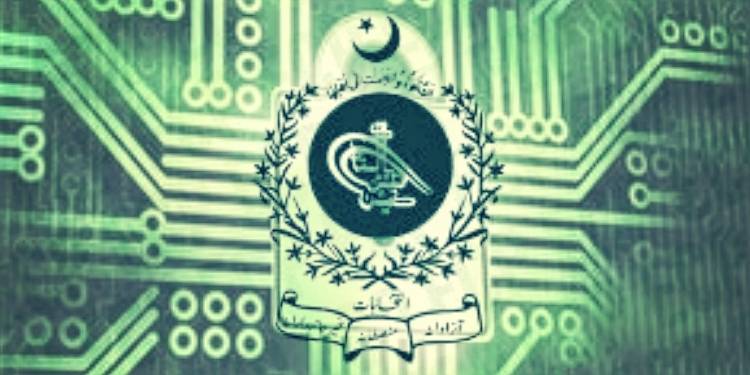
ISLAMABAD: The country’s top election body, the Election Commission of Pakistan (ECP), has finalized its plan to utiliser the Election Management System (EMS) in the upcoming general elections.
After getting the constitutional authority to announce the schedule of polls, the ECP has decided to install the EMS application on the desktop devices placed in offices of returning officers (ROs) of each constituency.
This newly introduced EMS-operated desktop application is believed to easily counter cyber attacks and work efficiently, as the last general elections became controversial due to the Result Management System (RTS) which crashed on election day.
The ECP will formally announce that the EMS will be deployed in the upcoming general elections, and the announcement is expected to be made along with the schedule of elections, sources informed The Friday Times (TFT).
Difference between RTS and EMS
The EMS-operated desktop computer application is entirely different from the controversial RTS. The application will be installed in offices of returning officers (ROs) and can also be monitored in the ECP’s main control room as well as at the concerned provincial election commission headquarters.
In the EMS-desktop app, data entry operators (DEOs) can enter particulars like names, numbers, registered voters, and polling stations, which will also display in the main control rooms.
The Commission recently organised a specialised training program to raise awareness and enhance understanding of the newly developed Election Management System (EMS). The main purpose of the training was to equip officials with comprehensive knowledge of the newly developed EMS so that it is effectively utilised for efficient and secure elections management across the country without any error.
The controversial RTS was operated through smartphone-based applications. The RTS transmitted Form 45 from polling stations to RO offices and the ECP Secretariat using a smartphone, and then performed the next process.
The RTS was an android-based application that crashed in the 2018 general elections. The political parties still blame usage of RTS as planned ploy. The RTS system was developed by the National Database and Registration Authority (Nadra) for immediate disbarment of results from the polling stations.
Cyber attack on ECP
The ECP also survived a cyber attack recently, while it was in the process of prepping the EMS application for the general election. ECP sources assert that the cyber attack has not harmed the systems, and the staff believes that the EMS would be a better technological solution for quick and transparent polling results.
After getting the constitutional authority to announce the schedule of polls, the ECP has decided to install the EMS application on the desktop devices placed in offices of returning officers (ROs) of each constituency.
This newly introduced EMS-operated desktop application is believed to easily counter cyber attacks and work efficiently, as the last general elections became controversial due to the Result Management System (RTS) which crashed on election day.
The ECP will formally announce that the EMS will be deployed in the upcoming general elections, and the announcement is expected to be made along with the schedule of elections, sources informed The Friday Times (TFT).
Difference between RTS and EMS
The EMS-operated desktop computer application is entirely different from the controversial RTS. The application will be installed in offices of returning officers (ROs) and can also be monitored in the ECP’s main control room as well as at the concerned provincial election commission headquarters.
In the EMS-desktop app, data entry operators (DEOs) can enter particulars like names, numbers, registered voters, and polling stations, which will also display in the main control rooms.
The Commission recently organised a specialised training program to raise awareness and enhance understanding of the newly developed Election Management System (EMS). The main purpose of the training was to equip officials with comprehensive knowledge of the newly developed EMS so that it is effectively utilised for efficient and secure elections management across the country without any error.
The controversial RTS was operated through smartphone-based applications. The RTS transmitted Form 45 from polling stations to RO offices and the ECP Secretariat using a smartphone, and then performed the next process.
The RTS was an android-based application that crashed in the 2018 general elections. The political parties still blame usage of RTS as planned ploy. The RTS system was developed by the National Database and Registration Authority (Nadra) for immediate disbarment of results from the polling stations.
Cyber attack on ECP
The ECP also survived a cyber attack recently, while it was in the process of prepping the EMS application for the general election. ECP sources assert that the cyber attack has not harmed the systems, and the staff believes that the EMS would be a better technological solution for quick and transparent polling results.

